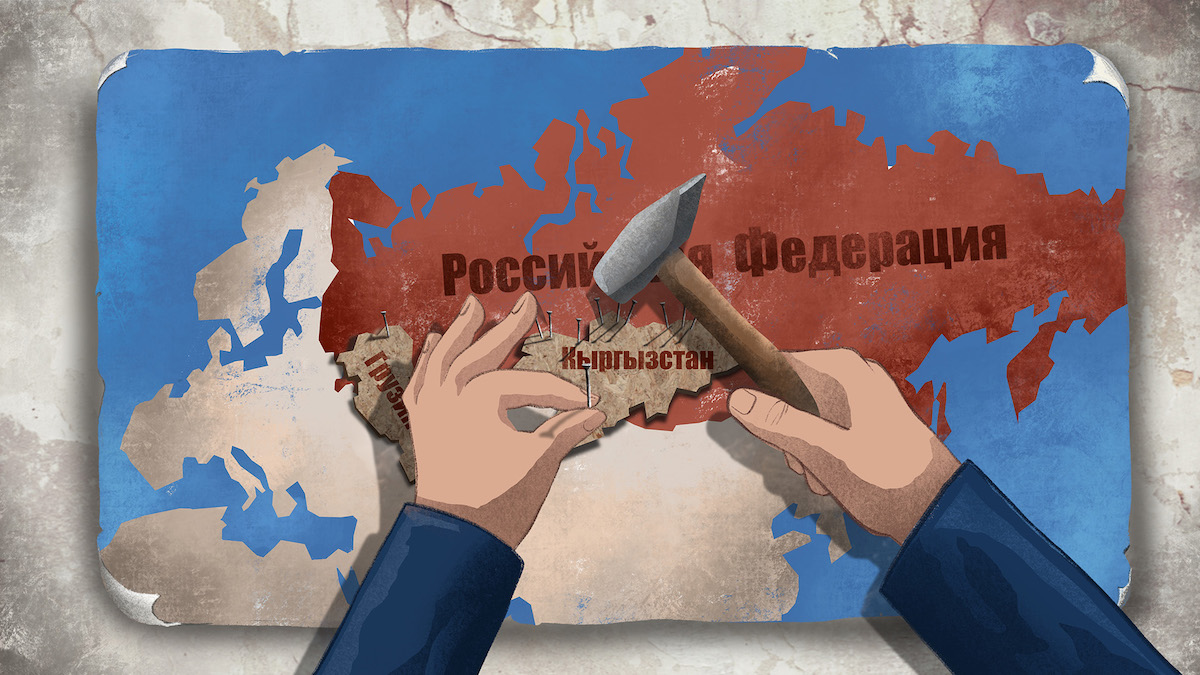Day: September 29, 2024
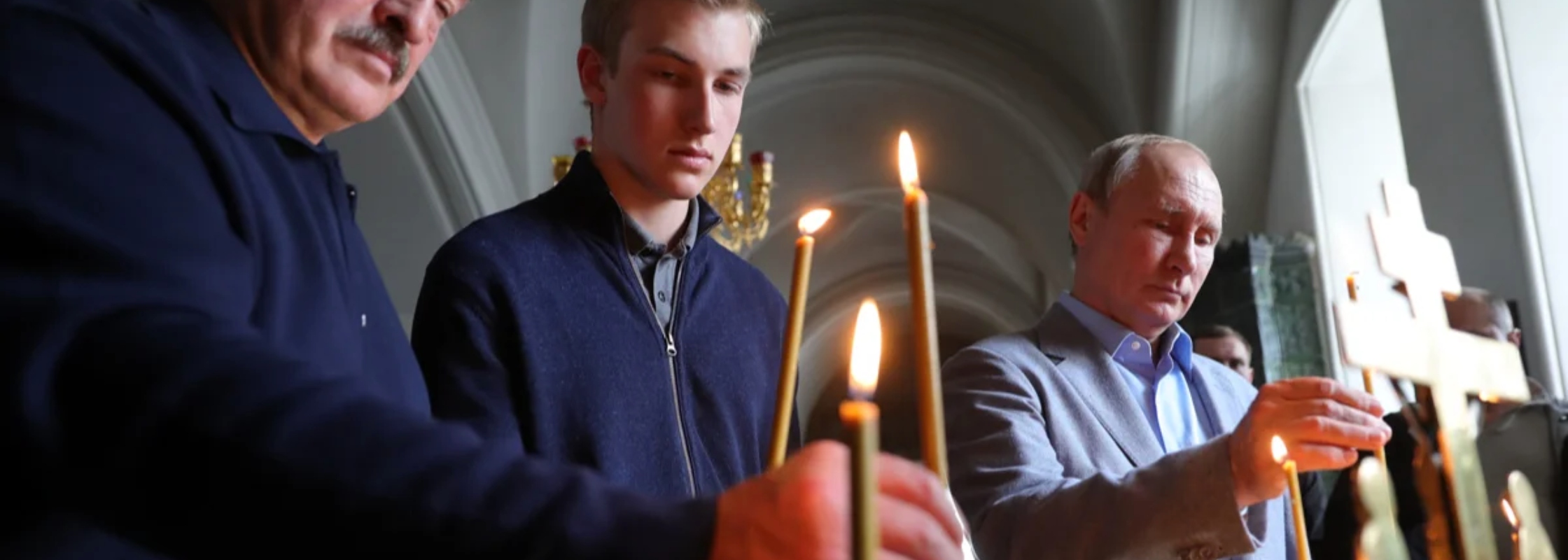
How dictators’ children live
In early September, thanks to an investigation by the Dossier Center, the world learned details about Vanya and Vova — the illegitimate children of Vladimir Putin and Alina Kabaeva.
Among other things, it was revealed that the sons of the Russian leader, who has severed ties with the West and advocates for a revival of “traditional values,” are actively learning European languages and using the services of Western, including British, specialists.
The boys’ parents go to great lengths to maintain secrecy, effectively isolating the children from the world. There’s nothing uniquely Russian about this story: a glance at how the children of the closest allies of Russia’s ruling regime live shows much the same. This article is from Novaya Gazeta Europe.
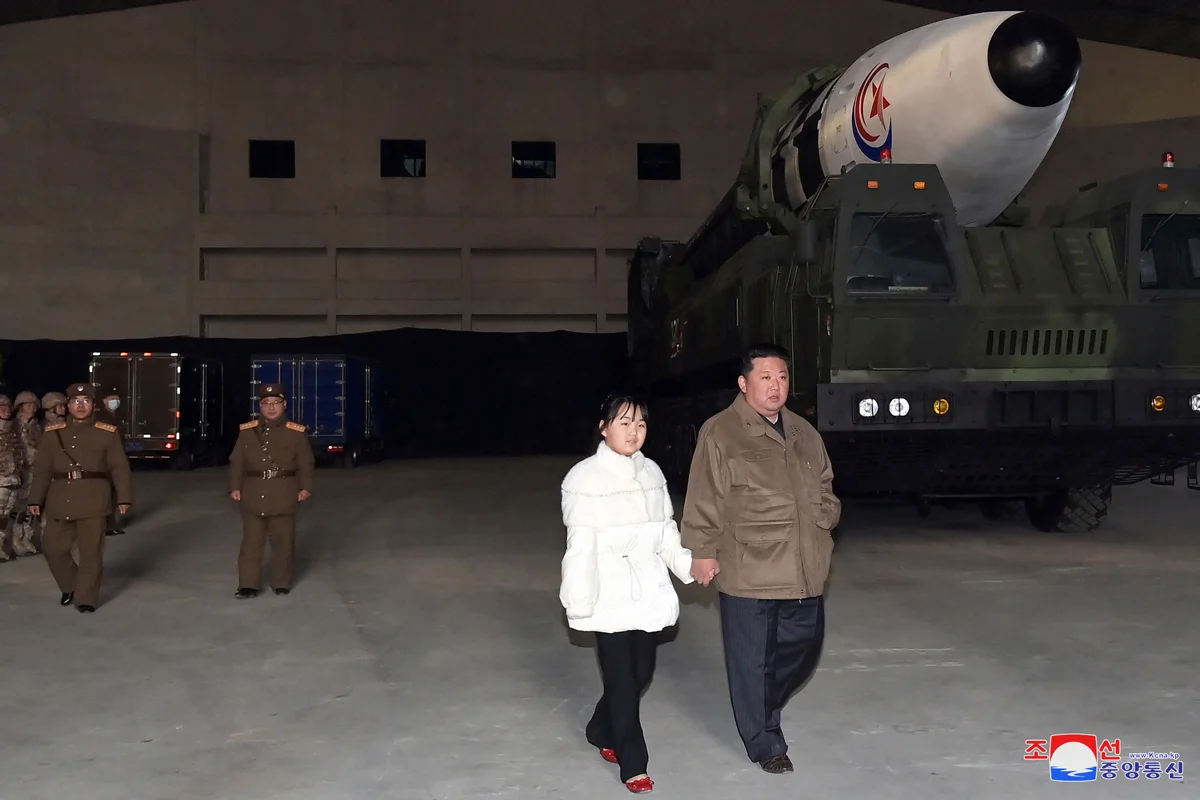
Kim Ju Ae
On November 19, 2022, the Korean Central News Agency (KCNA) released photos of the “Respected Comrade General Secretary” Kim Jong-un accompanied by his wife, Ri Sol-ju, and a teenage girl who had never been seen in public before. According to journalists, the photos were taken the previous day at Pyongyang Airport during the test launch of the latest intercontinental ballistic missile, the Hwasong-17. Holding the hand of the girl, who was dressed in a snow-white puffer jacket, the North Korean leader posed in front of the missile. Later, he was seen sitting at a viewing post, enthusiastically explaining something to her. The agency did not disclose the child’s name or age, referring to her only as “Kim’s beloved daughter.”
The North Korean ruling dynasty, which has been in power for more than 70 years, is obsessed with security and secrecy. For example, the current leader of North Korea did not appear in public until 2010, when he was already an adult. A year later, following the death of his father, Kim Jong-il, he effectively took control of the country. In the year after that, when Kim Jong-un turned 29, some details of his personal life leaked to the press: he lived and studied in Switzerland, speaks decent English, and is a fan of the NBA’s Chicago Bulls.
It is no surprise, then, that very little is known about Kim Jong-un’s daughter — at least not with certainty. Her age and name remain unknown. The media has dubbed her Kim Ju Ae, and this is only because in 2013, former Chicago Bulls forward Dennis Rodman, who visited North Korea to negotiate a potential match between American and North Korean basketball teams, referred to her by that name. Rodman had unexpectedly struck up a friendship with Kim Jong-un during his visit.
Rodman opened up in a conversation with a Guardian journalist, calling Kim “a great guy” and “a good father,” and admitted that he held Kim’s “little Ju Ae” in his arms.
From that interview, and based on the girl’s current appearance, it can be assumed that she is around 11 or 12 years old.
In March 2023, a report by South Korea’s National Intelligence Service (NIS) also revealed that Ju Ae enjoys skiing, horseback riding, and swimming, and she receives her education at home. The Kim family owns fourteen residences scattered across different regions of the country. The main and largest one, Ryongsong, located north of Pyongyang, spans about 12 square kilometers. The estate, built during the time of the dynasty’s founder, Kim Il-sung, is equipped with a horseback riding area and several swimming pools, giving young Ju Ae plenty of space.
Since her first appearance in the media, Ju Ae has been featured in North Korean official press dozens of times. Accompanied by her father, she has attended celebratory concerts, party congresses, missile launches, and military parades — essentially all major events involving the country’s top leadership. The NIS report also suggests that she likely has a brother and sister, though they have never been officially introduced. Based on this, South Korean intelligence speculates that Ju Ae could potentially become her 42-year-old father’s successor. However, the report notes that there is no historical precedent for this in North Korea’s dictatorship, and, given Kim’s youth and robust health, everything could still change.
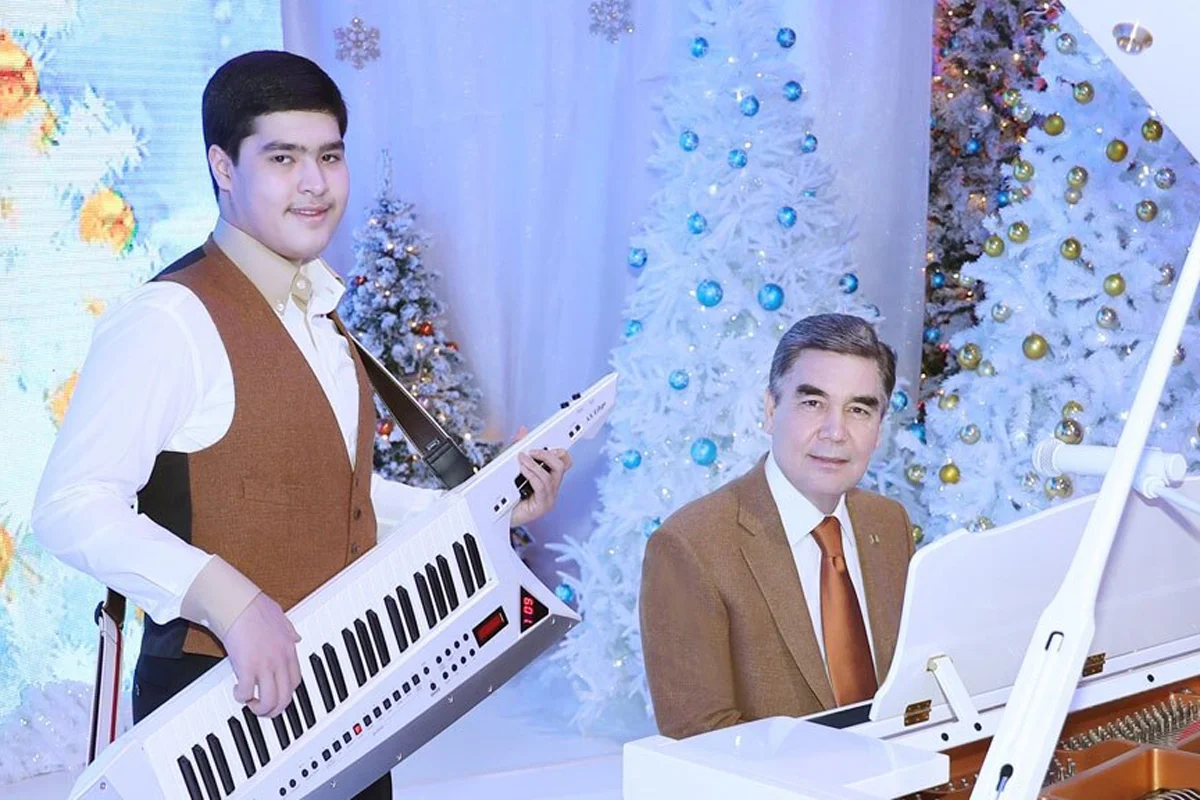
Kerimguly Berdymukhamedov
The current president of Turkmenistan, Serdar Berdymukhamedov, attracts significantly less attention from the global press compared to Kim Jong-un, although he conceals details of his personal life just as carefully. Until the end of the 2010s, he remained largely in the shadow of his father, Gurbanguly Berdymukhamedov, who ruled the country for 15 years. It was only after he assumed his first major position as the head of the Akhal velayat that the Turkmen “leader” (which is the literal translation of Serdar’s name) began to appear regularly in state television reports and assessments by foreign experts on Central Asia. Understanding this outwardly unflappable man with a bland voice proved to be quite difficult.
Only rumors reached journalists about how, shortly after becoming head of the velayat, he established security at his office, prohibited administration staff from leaving their workstations during his presence, and ordered everyone to behave as quietly as possible. A similar deafening silence surrounded his family. This largely continues to this day: there is no reliable information available about what the current first lady of the country looks like or even what her name is.
It is known that Serdar Gurbanguliyevich lives with his wife and three children next to his father’s family in a highly secure residence surrounded by the Kopet Dag mountains on the banks of the Firuza River.
However, only those closest to him know what the interior of the residence looks like and how the life of Turkmenistan’s leader is organized. No one outside this circle knows what the two daughters of the president look like; according to opposition Turkmen media, their names are Ogulbabek and Aigul.
The only family member of Serdar Berdymukhamedov known to the world is his son Kerimguly, who gained his fame largely due to his grandfather. Towards the end of his rule, Arkadag (literally “Protector,” the official title of Gurbanguly Berdymukhamedov) increasingly involved his grandson in his numerous hobbies.
They rode bicycles together, built snowmen, and played music, always accompanied by a film crew. Even after formally handing over power to his son, Gurbanguly Berdymukhamedov continued to involve his grandson in his public activities, including official events. Last year, for example, they undertook a pilgrimage to Mecca, during which they also held discussions with representatives of Arab business circles to attract investments to the republic.
As a result, 21-year-old Kerimguly has become the third most public figure in Turkmenistan after his grandfather and father. However, not much is known about him. In the early 2010s, he attended a closed elite school in Geneva with his sisters, where his father worked at the Turkmen embassy to the UN.
A year ago, he got married (though nothing is known about his wife, except that she seems to come from a family of high-ranking Turkmen security officials), and last summer, he graduated from Exeter University in the UK, earning a degree in political science and international relations.
The attention to the fact that the president of Turkmenistan’s son is on this year’s graduation lists was drawn by John Heathershaw, a professor at the university specializing in Central Asia. In his account on X, he mentioned that he had never seen the son of the Turkmen president in his class and had not met anyone among the students or staff who had interacted with or seen Kerimguly Berdymukhamedov.
“He could be an interesting addition to my course on Central Asian politics,” Heathershaw added.
It is still too early to talk about Kerimguly’s political prospects, considering that his father is only 43, and his grandfather is not rushing to step back from power, leading the Turkmen parliament and representing the country on the international stage.
By declaring himself the Milli Leader (National Leader) and legally securing his own immunity, Arkadag seems to have taken into account the experiences of neighboring countries and has made significant efforts to prevent excessive activity from his son. It is quite possible that Gurbanguly Berdymukhamedov is showcasing his grandson to spite his son, pretending to be undecided about his successor.
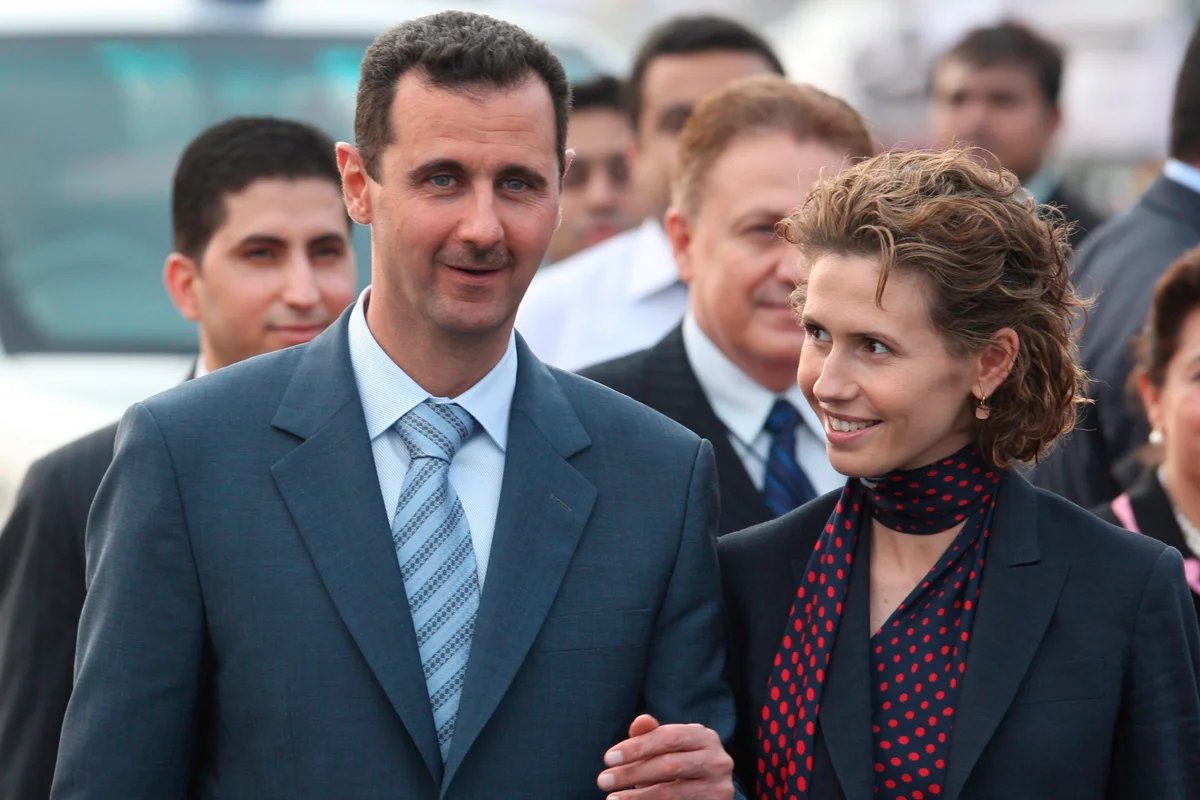
Hafez, Karim, and Zein al-Assad
Syrian dictator Bashar al-Assad and his wife, London-born Asma al-Assad, have not kept their private lives much of a secret. The couple, who have been in what appears to be a stable marriage for almost a quarter of a century, have three children: two sons, Hafez and Karim, and a daughter, Zein. All of them were born shortly after Bashar succeeded his father, Hafez al-Assad, and grew up in luxurious residences built by the elder Assad on the hills west of Damascus.
In 2015, British journalist Jeremy Bowen, who visited the Presidential Palace, described a marble-finished guest house styled like a small hotel, a relaxation area with fountains in the corners, a library filled with English books, and the host’s remarkable politeness—Bashar, a professional ophthalmologist, who once interned at a London hospital.
According to an interview Asma al-Assad gave to Vogue magazine in February 2011, Hafez, Karim, and Zein did not receive home-schooling but attended a Montessori school in Damascus. This article, which vanished from Vogue’s official website shortly after the start of the Syrian civil war—just a month after it was published—stands out for its portrayal of Syria as “the safest country in the Middle East,” and Asma as “the freshest and most magnetic of first ladies.”
A few years later, when the Syrian conflict’s death toll had reached hundreds of thousands and the number of refugees surpassed a million, Asma decided to share additional details about her children’s lives with the world.
On her Facebook account, Asma al-Assad shared that Hafez, who had grown nearly as tall as his father, shares his mother’s love for technology and computer science and is studying Russian. Zein, described as “a strong and confident individual who maintains close ties with people,” is learning Spanish, while Karim is also keeping up with his siblings. He is into sports and learning Chinese, with robotics becoming another interest of his.
The youngest of the Assad children even participated in international robotics competitions and won prizes. Zein has demonstrated her “closeness to people” by engaging with the Syria Trust for Development charity, particularly in organizing aid for her father’s wounded soldiers. However, in 2020, when one of these soldiers, Yazan Soltani, showed excessive interest in the daughter of his commander-in-chief, he was arrested and beaten.
Since the Russian army’s involvement in Syria’s civil war in 2015, supporting government forces, the Assads’ ties with the Russian leadership have strengthened.
For instance, in 2017, all three of Bashar al-Assad’s children vacationed in Crimea, at the legendary Artek camp. Two years later, Financial Times released an investigation revealing that the Assad family owns at least two dozen apartments in Moscow’s “Moscow City” district.
Journalists noted that the Syrian ruling family is using property purchases worth about 2.5 billion rubles to move money out of the country. It’s also possible that the eldest Assad child, Hafez, lived in one of these apartments. A longtime math enthusiast, who participated in international math Olympiads, Hafez enrolled in the Faculty of Mechanics and Mathematics at Moscow State University (MSU) and completed his master’s degree there last year. His graduation ceremony was attended by his mother at the invitation of the university’s rector, Viktor Sadovnichiy.
For understandable reasons, Bashar al-Assad’s children live private lives and rarely comment publicly on events in their country. However, Hafez Assad, who will likely take his father’s place one day, did break his silence at least once.
While giving an interview to a Brazilian publication during his participation in a math Olympiad in Rio de Janeiro, and responding to a question about how he feels when people call his father a dictator, Hafez erupted: “I know what kind of man my father is. Many people are just blind. I live and see the nightmare that’s happening to our country. This isn’t a civil war, it’s simply people taking away our home. This is a war against our people!”
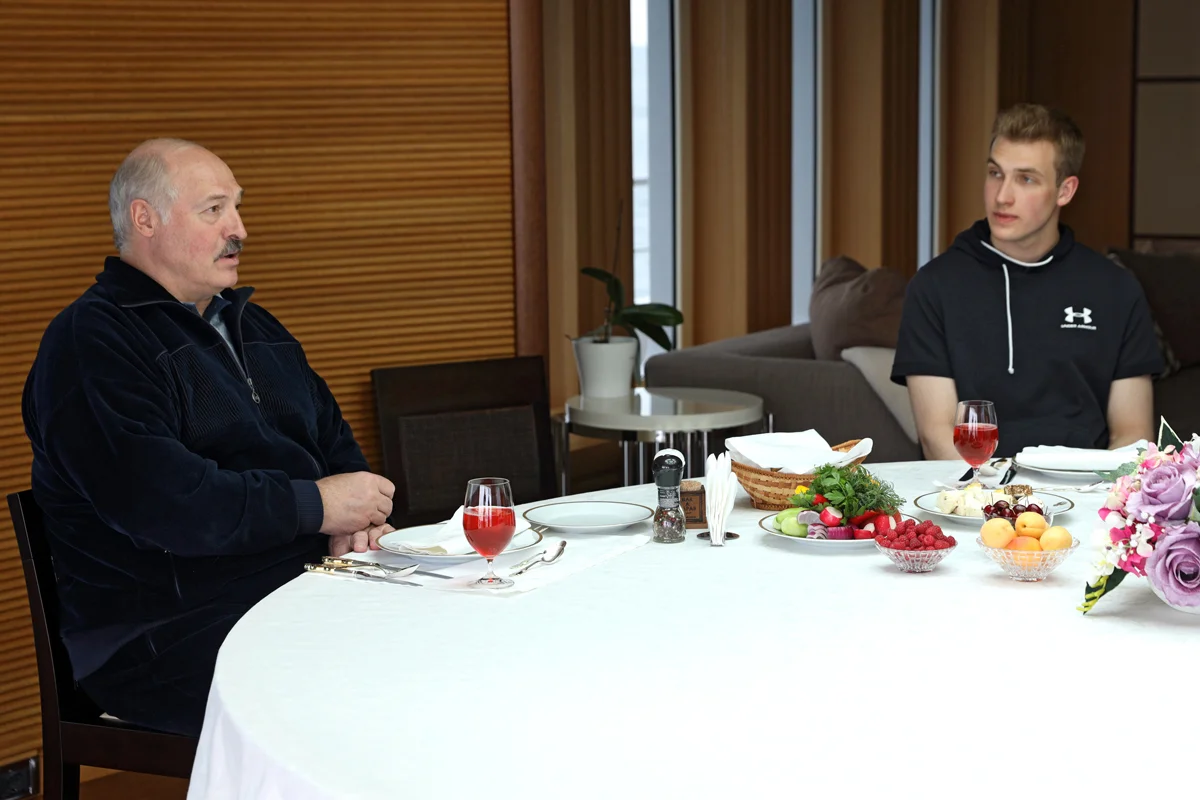
Kolia Lukashenko
Alexander Lukashenko can’t be considered an exemplary family man. After winning the first and only free presidential elections in the country, he chose not to move his wife, Galina Rodionovna, to Minsk, essentially confining her to their native village under police supervision.
While he kept his two legitimate sons, Viktor and Dmitry, close by, they were relegated to secondary roles, always in the shadows. However, Lukashenko made an exception for his third son, Kolia, born out of wedlock from his relationship with personal doctor Irina Abelskaya.
Since 2008, when three-year-old Kolia first appeared in public during a city cleanup event—where he helped his father level concrete at the “Minsk-Arena” construction site—the boy has rarely been absent from Belarusian television.
Many attributed Lukashenko’s sudden display of fatherly instincts, at the age of fifty-four, to his collaboration with British PR consultant and political strategist Timothy Bell. However, this partnership ended just a year later, while Kolia’s public presence continued to grow. He accompanied his father to almost every event, from inspecting Belarusian collective farms and construction sites to attending parades and meeting world leaders—from Gaddafi to Obama, and from Chávez to the Pope.
Russian president Vladimir Putin has also become somewhat of a godfather figure to Kolia; they have met dozens of times and even played on the same hockey team. The intense schedule of this unusual father-son duo dictated their everyday life, with Lukashenko himself admitting that Kolia never spent a day apart from him.
“He’s attached to me like a shadow, and it’s been that way for years. I’m forced to take him with me on international trips because he won’t sleep otherwise—he’ll push himself to exhaustion. If he’s with me on the plane, he’ll sleep and eat. He’s attached to his father, so what? Should I push him away? Does he bother me?”
— Alexander Lukashenko admitted in an interview with Mikhail Gusman. In a conversation with American professor Grigory Ioffe, Lukashenko also revealed that Kolia’s mother primarily sees him on TV.
This dramatic detail was indirectly confirmed in 2022 when Nikolai Lukashenko received his high school diploma and a gold medal—Irina Abelskaya, his mother, did not attend the graduation ceremony. By then, she had long lost her former position and regular access to the president. However, according to opposition Belarusian media, Kolia’s mother was one of the founders of a gymnasium located in the elite Drozdy district of Minsk, near Lukashenko’s residence.
It was likely to this school that Nikolai transferred in the summer of 2020, during the peak of the Minsk protests. This raises the possibility that mother and son may have seen each other more often than is commonly believed. Notably, during the standoff between Minsk residents and Lukashenko, the 15-year-old Kolia publicly and fervently supported his father: he was seen running around the presidential palace in a bulletproof vest, carrying a machine gun, and later observing protesters from a helicopter, angrily asking, “Where are they?”
As expected for the son of a dictator, Nikolai leads a private life, rarely appearing in public outside of official engagements, and does not maintain social media accounts. According to official Belarusian TV reports and interviews with his father, he is interested in natural sciences, particularly biology, is active in sports, speaks fluent English, and plays the piano well. Independent journalists’ investigations have not uncovered much about Kolia’s private life either: he uses Telegram, has several accounts on educational platforms and the photo-sharing site Pinterest, and enjoys playing the video game S.T.A.L.K.E.R., developed by a Ukrainian company.
Alexander Lukashenko has repeatedly stated his intention to groom Nikolai as his successor. “If we talk about a successor, I’ll prepare the youngest—he’s a unique person,” Lukashenko stunned reporters in 2007, when Kolia was only three years old and few knew of his existence. Five years later, the Belarusian dictator indirectly reaffirmed this idea during a visit to Venezuela.
However, in 2012, during an Independence Day celebration, he walked back those earlier statements, declaring that “there can be no inheritance of power.” Finally, in 2020, just before the presidential election and subsequent protests, Lukashenko responded to Dmitry Gordon’s direct question on whether he was grooming Kolia to be his successor: “No, Kolia will probably never be president. I don’t want that.”
After hundreds of thousands of politically active citizens left Belarus, few remain who could prevent Alexander Lukashenko from changing his mind again. Kolia, who is currently studying in Beijing, has never publicly expressed any desire to inherit his father’s power.

